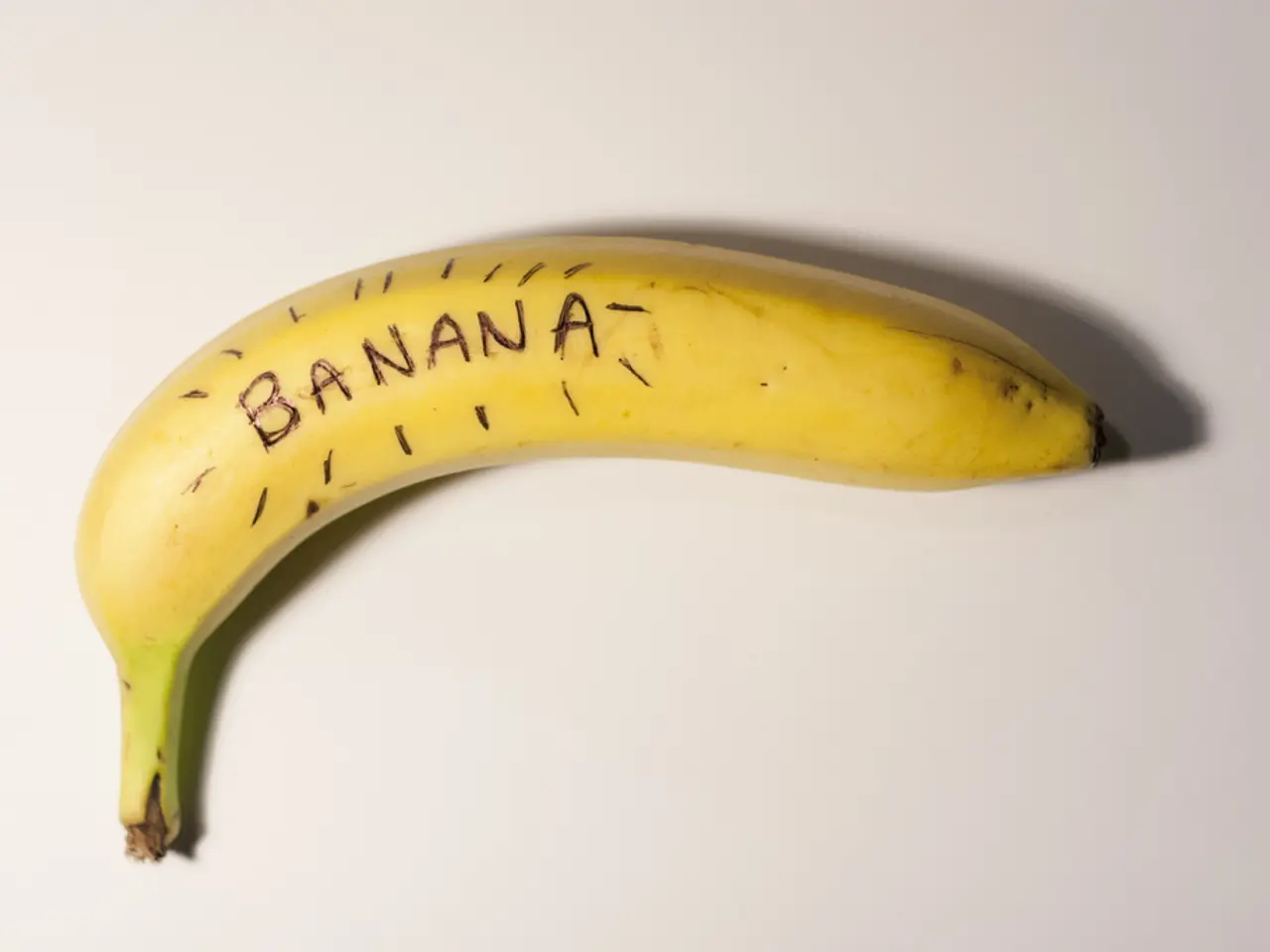Increased banana exports demonstrate an imminent projected revenue of $4 billion
Vietnam's banana industry is set for a significant transformation as the government and key players focus on modernizing the value chain, enhancing processing capabilities, and diversifying products and markets. The goal is to elevate Vietnam's position as one of the top 10 banana-exporting nations and increase the export value to an estimated $4 billion.
Deputy Minister of Agriculture and Environment Trần Thanh Nam emphasized the need for comprehensive restructuring in Việt Nam's fruit sector, including bananas, for long-term sustainability. Key priorities include the development of concentrated raw material zones, improvements in crop varieties and farming techniques, and reductions in input costs.
Unifarm, a major player in Vietnam's banana industry, is committed to building a globally recognized and reputable banana brand. The company is implementing a standardized, comprehensive quality control process across its entire production chain and is modernizing processing facilities and enhancing logistics infrastructure to improve efficiency and competitiveness in global markets.
Võ Quan Huy, popularly known as the 'Banana King', suggests developing processed banana products and by-products as a means to elevate Việt Nam's banana industry and reduce reliance on traditional export markets. Current processed products, such as dried bananas, banana chips, banana wine, banana cakes, and banana powder, are produced on a small scale. Policies are proposed to support businesses with capital, technology access, and market development domestically and internationally.
Effective management of banana varieties remains a critical issue for Việt Nam's banana sector, with the number of businesses registering for variety testing remaining low. The Ministry of Agriculture and Environment is considering limiting official variety registration to just two primary crops - rice and corn - while other crops, including bananas, would move to a self-declaration system.
Investing in research and technology transfer programs, especially for new banana varieties that are disease-resistant and high-yielding, is another strategic element. Notably, efforts are being made to develop banana varieties resistant to Panama wilt disease. Additionally, full utilization of banana waste to reduce environmental impact and increase profitability is being pursued.
Strengthening quality control and traceability is another key focus area. Defining core production zones, integrating technology for area registration, and applying strict quality standards to meet international market requirements are essential steps towards this goal.
Policy support is crucial for sustained innovation in the sector. Companies are being encouraged to reinvest profits into research and technology development and to facilitate technology imports.
In 2024, banana exports brought in nearly $380 million. Most Vietnamese bananas are exported fresh, primarily to China, South Korea, Japan, and some Middle Eastern countries. However, with the implementation of these strategies, the industry aims to expand its presence in major international markets, including Canada, the EU, and the US.
Overall, the development plan emphasizes sustainable growth through innovation, value addition, and market diversification, which are essential for Vietnam to maintain and expand its role among the world’s top banana exporters. Unifarm, as a leading player, is working towards sustainable development in Vietnam's agricultural sector, modernizing processing facilities, strengthening logistics infrastructure, building strong brand identities, and promoting official export channels.
- To ensure long-term sustainability in Vietnam's fruit sector, comprehensive restructuring is required, focusing on developing concentrated raw material zones, improving crop varieties, and reducing input costs.
- Unifarm, a key player in Vietnam's banana industry, is working on creating a globally recognized banana brand through standardized quality control, modernized processing facilities, and enhanced logistics infrastructure.
- Võ Quan Huy proposes developing processed banana products as a means to elevate Vietnam's banana industry, reduce reliance on traditional export markets, and support businesses with capital, technology access, and market development domestically and internationally.
- Effective management of banana varieties is a critical issue, with the Ministry of Agriculture and Environment considering a self-declaration system for crops like bananas, while limiting official variety registration to rice and corn.
- Investments in research and technology transfer programs for disease-resistant and high-yielding banana varieties, such as those resistant to Panama wilt disease, and the utilization of banana waste for environmental impact reduction and increased profitability, are strategic elements.
- Strengthening quality control and traceability, through core production zone definition, technology integration for area registration, and strict quality standards to meet international market requirements, is essential for growth in major international markets, including Canada, the EU, and the US.




